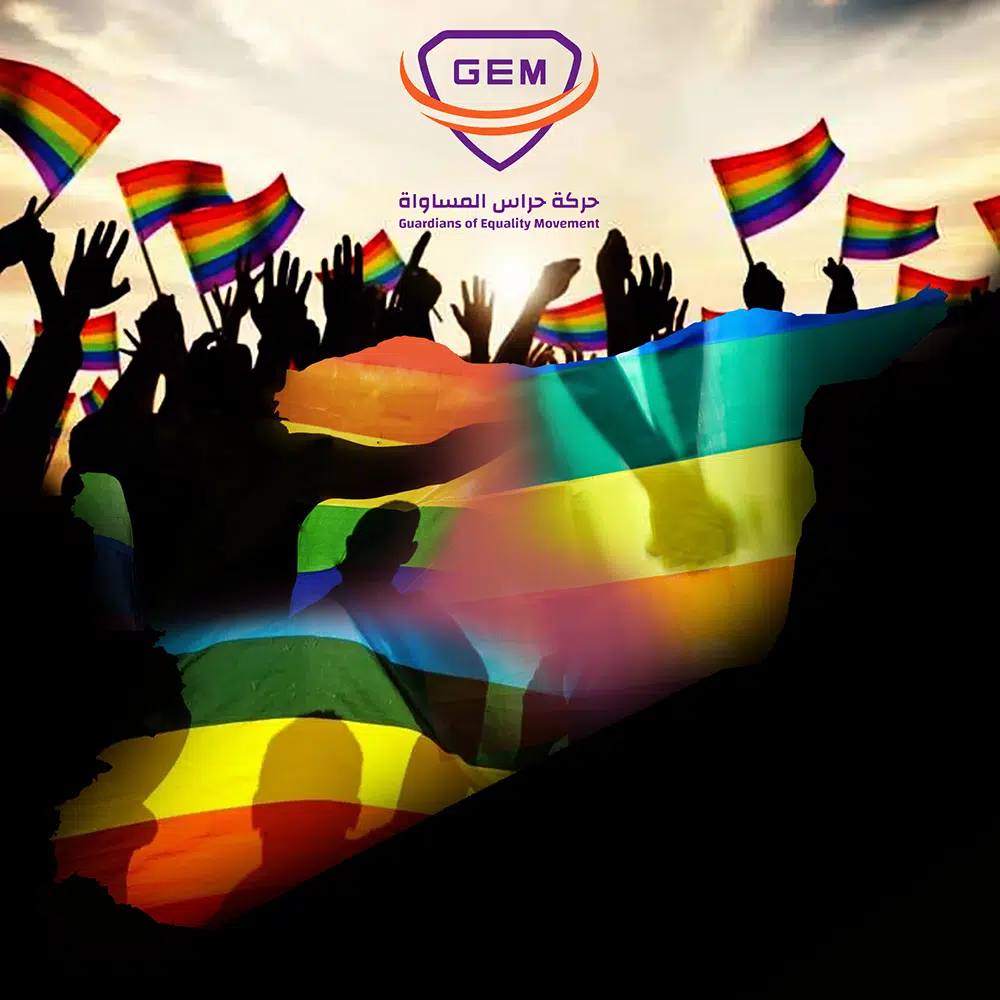Article Source: GRLبنت
We are excited to share our recent interview with GRLbint, which focuses on gender issues in the MENA region. Read more about our organization and our upcoming goals!
WHY DID YOU DECIDE TO START GEM & WHAT DOES GEM HOPE TO ACHIEVE?
GEM was founded by Syrian LGBTQIA+ rights defenders, humanitarian workers, and activists. The concept for the organisation was inspired by the lived experience of discrimination and percecutions of LGBTQIA+ refugees and victims of torture, both from members of the organsation and from the wider LGBTQIA+ community. The simple goal of GEM is to improve the situation for LGBTQIA+ people in Syria and through out the Syrian diaspora, preventing further human rights violations inflicted due to gender identity or sexual orientation.
WHAT ARE SOME OF THE ONGOING STRUGGLES SYRIAN LGBTQIA+ ARE EXPERIENCING INSIDE SYRIA?
Homophobia in Syria is a stratified problem and must be approached as such, its forbearance has been fueled by a cultural and social lack of understanding protected by the enforcement of antiquated laws. The consequences of being LGBTQIA+ range from social exclusion, torture, and imprisonment all the way to excecution.
WHAT LAWS/SOCIAL BELIEFS EXIST IN SYRIA THAT THREATEN THE SAFETY OF SYRIAN LGBTQIA+?
Article 520 of the Syrian Penal Code enforces a minimum of three years imprisonment for LGBTQIA+ with it stating, “carnal relations against the order of nature”. The most severe types of violence and torture by society or the state/de-facto forces are justified under Article 520, but within society, being LGBTQIA+ is also intertwined with religion. Some religious interpretations criminalize homosexuality, making society unaccepting of it. Unfortunately, due to homosexuality being severely criminalized, individual could be exiled from their families if they are gay. The level of danger and/or violence is based on geographical location. For example, in northern and northwest Syria, members of the LGBTQIA+ community may be executed by de facto forces or subject to severe physical and psychological violence.
WHAT CHANGES AND SERVICES ARE NEEDED TO SUPPORT SYRIAN LGBTQIA+ INSIDE SYRIA & THE DIASPORA?
Solutions are needed at the political level as well as in civil societies and humanitarian aid. The LGBTQIA+ community is excluded from conferences and activities contributing to decision-making. For example, the annual Brussels conference that mobilizes support for the Syrian crisis from international donors, has lacked any participation of the LGBTQIA+ community since 2017. Further, no budget has ever been allocated to LGBTQIA+. In the Syrian context, humanitarian aid is being provided mainly from outside Syria by the United Nations and the Syrian Constitutional Committee which is under the leadership of the Special Envoy for Syria. This means that there is an opportunity to avoid homophobia and local intolerance of the LGBTQIA+ community since the management of aid is from outside of Syria.
Further, protection services and financial assistance are highly needed and more work should be done to provide data on the needs/challenges the LGBTQIA+ community face. There is a great need for local and international advocacy/awareness for aid organizations that are working on the Syrian context since homophobia also exists within these institutions.

